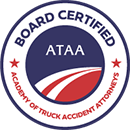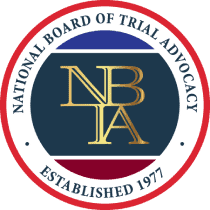Can a Trucker Drink Before Going on Duty?
In the trucking industry, nothing is more important than safety. Truck drivers are responsible for operating massive vehicles that can pose significant risks of injury and death if not handled with care.
Obviously, it’s illegal to operate a truck (or any vehicle) when impaired, especially beyond the legal limit, but one question that often arises is, “Can a trucker drink before going on duty?”
Let’s take a closer look at this topic, as well as the regulations, risks, and responsibilities involved.
A Zero Tolerance Policy Is in Place
One critical principle emphasized by both the Federal Motor Carrier Safety Administration (FMCSA) and trucking companies is zero tolerance for alcohol consumption while on duty.
Truckers are expected to abstain from drinking alcohol during their work shifts, including before or after driving. This policy aligns with the overarching goal of ensuring the safety of drivers, passengers, and other road users.
Any violation of this policy can result in severe consequences, including termination of employment and legal penalties.
Understanding the Rules Regarding Drinking Then Driving as a Truck Driver
The first aspect to consider is the legal framework governing alcohol consumption for truck drivers.
The FMCSA sets forth clear guidelines regarding alcohol use and commercial motor vehicle (CMV) operations.
According to FMCSA regulation 49 CFR 392.5, drivers are forbidden to use or be under the influence of alcoholic beverages or have a measured blood alcohol concentration (BAC) of 0.04 or greater while on duty, operating, or in physical control of a CMV. Additionally, that federal regulation only allows truckers to transport alcohol as part of a shipment.
Any truck driver found in violation of the above-referenced alcohol misuse regulation will be placed out-of-service for 24 hours effective immediately.
Risks and Consequences of Trucking While Under the Influence of Alcohol
The risks associated with alcohol consumption by truck drivers are far-reaching.
Even a small amount of alcohol can impair a person’s cognitive functions, reaction times, and decision-making abilities, all of which are crucial for safe driving. Operating a CMV under the influence of alcohol not only endangers the life of the trucker but also jeopardizes the lives of everyone on the road.
In addition to posing immediate safety hazards, alcohol-related incidents can have long-term repercussions, including legal liabilities, financial losses, and damage to a person’s professional reputation.
Legal Ramifications
From a legal standpoint, the consequences of alcohol-related infractions for truck drivers can be severe.
In addition to facing criminal charges for driving under the influence (DUI), truckers may also be subject to administrative penalties imposed by the FMCSA and their employers.
These penalties can include fines, license suspension or revocation, mandatory substance abuse counseling, and participation in rehabilitation programs. Moreover, a DUI conviction can tarnish a driver’s record, making it challenging to secure future employment in the trucking industry.
Enforcing Compliance
To ensure compliance with alcohol regulations and promote a culture of safety, many trucking companies implement strict policies regarding employees’ alcohol use.
These policies typically include pre-employment drug and alcohol screenings, random testing, and post-incident testing following accidents or near misses. Additionally, companies may provide education and training programs to raise awareness about the dangers of alcohol impairment and encourage responsible behavior among drivers.
Personal Responsibility
A 2018 International Journal of Environmental Research and Public Health study published by the National Library of Medicine (NLM) highlighted how 19% of commercial truck drivers polled reported binge drinking (five or more drinks in a short period) while 9.4% of the truck drivers participated in everyday drinking.
Ultimately, the responsibility for adhering to alcohol regulations and prioritizing safety lies with the individual truck driver. Each trucker must recognize the gravity of their role and the potential consequences of alcohol consumption on the job.
By making informed choices and exercising self-discipline, truckers can protect themselves, their passengers, and the public from harm.
Moreover, fostering a culture of accountability within the trucking community is essential for upholding industry standards and promoting collective safety.
The question of whether a trucker can drink before going on duty is clearly and unequivocally answered by strict regulations, zero-tolerance policies, and a commitment to safety. Alcohol and commercial trucking simply do not mix.
Truck drivers must abstain from drinking alcohol while on duty and understand the severe consequences of non-compliance.
By upholding these standards, drivers can fulfill their responsibilities, protect lives, and contribute to a safer transportation industry for all.
If you had an accident with a truck in Las Vegas or anywhere else in Nevada, Trucking Injury Law Group is here to help you learn more about your rights to seek compensation for your injuries. Contact our firm for a free case review to learn more about your rights to get the justice you deserve.






